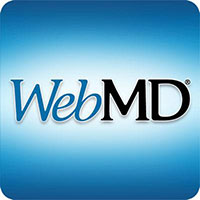Ingredients Make ‘Smart’ Supplements Not-So-Smart
[ad_1]
By Dennis Thompson
HealthDay Reporter
THURSDAY, Sept. 24, 2020 (HealthDay News) — Maybe you’re a senior concerned that your mind has started to lag a bit. Or maybe you’re a college student looking for an edge in your classes.
Either way, a new study warns that you should seriously reconsider taking any over-the-counter supplement that promises a powerful brain boost.
A review of so-called “smart drug” nutritional supplements found a handful that were packed with foreign pharmaceuticals not approved in the United States, often in potentially dangerous combinations and dosages.
In some cases, these illegal drugs were brazenly promoted on packaging, said lead researcher Dr. Pieter Cohen, an associate professor of medicine with Harvard Medical School, in Boston.
“We found there were foreign drugs that have never been approved by the [U.S. Food and Drug Administration] openly listed on product labels,” Cohen said.
In testing 10 sample supplements available for sale on the internet, Cohen and his colleagues discovered they contained five different unapproved drugs, sometimes substituted one for the other, and with no way for a consumer to know what they’re actually taking.
“A product might list drug A on the label but contain drug B in the actual pill,” Cohen said. “We found oftentimes they would have dosages that were as potent as the prescription version found in foreign countries, and surprisingly, and very concerningly, sometimes dosages that were much greater than prescription.”
The researchers also found that the foreign drugs were blended in some pills, in ways that could be potentially dangerous to consumers.
“One of the drugs might have been studied for something in Russia, but never before have three or four of these drugs been mixed together and studied in humans. They’re really completely novel cocktails of prescription drugs that have never been studied,” Cohen said.
“The fact we found some drugs at four times normal doses and we found some products that contain up to four different drugs, now all bets are off,” Cohen concluded. “It’s impossible to say what the effect of that would be in humans, because it hasn’t been studied.”
Continued
The Council for Responsible Nutrition (CRN), the leading dietary supplement trade association, dismissed the new study as making “sweeping conclusions about the brain health category of dietary supplements based on a narrow selection of 10 illegal products found on the internet.”
“We encourage the public to avoid taking the findings of this analysis out of context and recognize this small sample is not representative of the brain health supplement category as a whole,” CRN president and CEO Steve Mister said in a prepared statement. “The mainstream dietary supplement market is made up of responsible and ethical companies that are dedicated to providing consumers with safe, quality and beneficial products to improve their health and wellness.”
For this study, Cohen’s team searched the U.S. National Institutes of Health Dietary Supplement Label Database and the Natural Medicines Database for cognitive supplements that listed drugs similar to piracetam, a drug previously found in supplements but not approved by the FDA. Piracetam is sold in Europe as a drug to improve memory and brain function.
In the 10 supplements they examined, the researchers detected five unapproved drugs. Two were analogs of piracetam called omberacetam and aniracetam. The others were the unapproved drugs vinpocetine, phenibut and picamilon.
Omberacetam is a medication available in Russia to treat traumatic brain injury, mood disorders and cerebral vascular disease. Aniracetam is a drug approved to treat dementia in several countries, including Italy, Argentina and China.
Vinpocetine, a pharmaceutical drug available in Germany, Russia and China, is used to treat acute stroke and cognitive impairment.
The FDA has issued A warning that vinpocetine should not be taken by women of childbearing age, and known side effects of the other drugs include increased or lowered blood pressure, agitation, sedation and hospitalization, the researchers noted.
All 10 supplements tested contained the Russian drug omberacetam, sometimes in doses four times greater than what you’d find recommended abroad, the researchers said.
One of the products contained a cocktail of three unapproved drugs, while another contained four.
Makers of supplements promising a brain boost are preying upon the worries of folks who are getting older, said Dr. Jonathan Graff-Radford, a neurologist with the Mayo Clinic in Rochester, Minn.
Continued
“I don’t think a day goes by where patients and their family members don’t ask us about cognitive enhancement that they read about or see on commercials that would boost performance, and what do we think about them taking these,” Graff-Radford said. “Patients tell me they’re interested in them because they may be experiencing some early cognitive changes and looking to find anything they can to boost their performance and get back to the way they felt five to 10 years ago.”
At this point, any promises made by supplement makers to boost your brainpower are hollow, Graff-Radford said.
“Right now, there are no known dietary supplements that prevent cognitive decline or dementia,” said Graff-Radford, adding that doctors can prescribe FDA-approved medications that have been shown to modestly boost the cognitive performance of Alzheimer’s patients.
Products like the ones found in this study continue to be sold in the United States — and even are found on federal websites — even though it’s not legal to include unapproved drugs in dietary supplements, Cohen said.
The FDA has previously attempted to remove some of these drugs from the supplement market, but loopholes in the law allow companies to sell supplements without ever informing the FDA, the researchers said. There’s also no system in place for the FDA to track products on the market.
“We need a reform of the law that at a minimum requires that products are registered with the FDA before they’re marketed, and gives the FDA the ability to decline to register products that just simply reading the label you can tell it has prohibited or unlawful ingredients in it,” Cohen said.
“In the short term, FDA could simply do its job,” Cohen continued. “When they see companies manufacturing these products, they look for other companies manufacturing supplements containing the same drug and they take action on all the companies. If the companies don’t respond to a warning letter, they pursue more aggressive action, like mandatory recall.”
Without such action, Cohen and Graff-Radford said they would recommend against people using any supplement that promises to sharpen their brain.
Continued
“Because of these fundamental flaws in how supplements are sold in the United States, it’s my opinion that all supplements that are advertised as if they’ll improve brain health should be avoided,” Cohen said “We just don’t have assurances those products don’t contain foreign drugs.”
The new study was published online Sept. 23 in the journal Neurology: Clinical Practice.
[ad_2]
Source link


